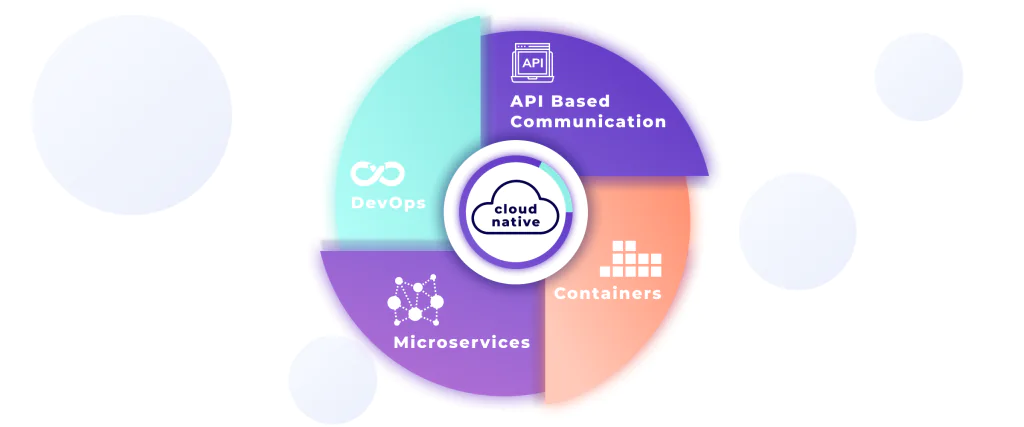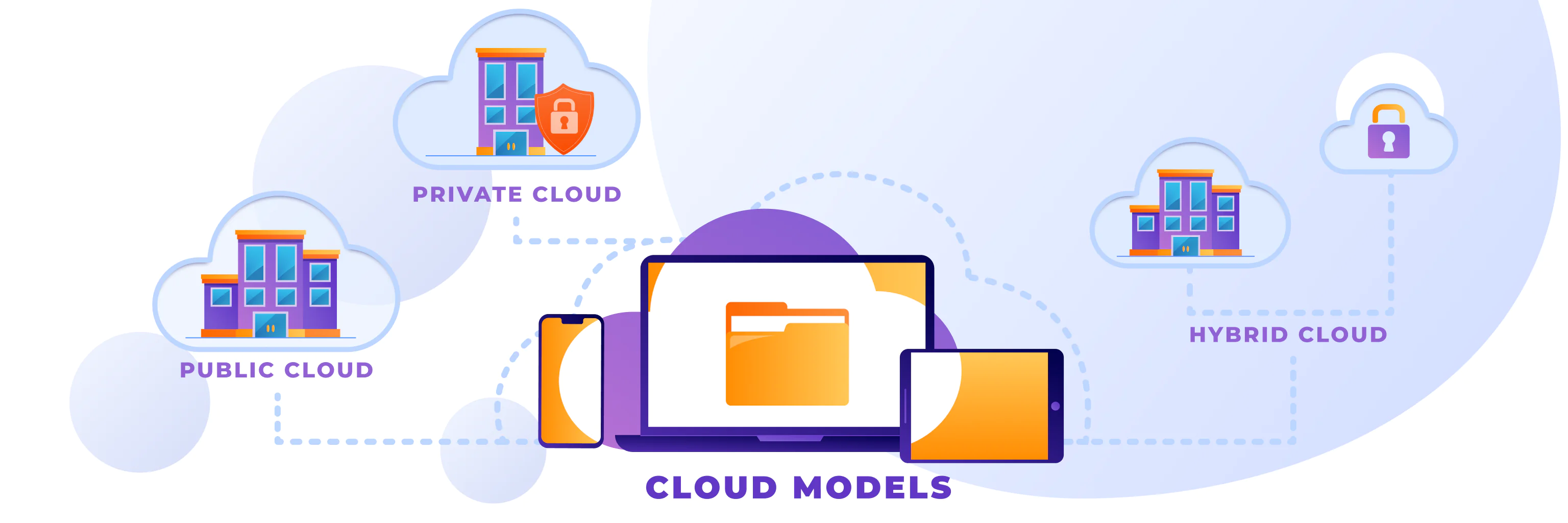Table of contents
Are cloud-native apps better than cloud-based? What exactly does cloud-enabled mean? What is the best course for an enterprise that wants to use cloud technology better? Cloud migration experts answer these and more questions that will help you understand the differences between cloud application types. Most importantly, you’ll see how migrating to the cloud can help your business and how to do this in the most cost-efficient manner.
If you aren’t already ‘up in the cloud’, your business is losing to competition more with every passing minute. So don’t waste your chance to get better, more efficient, productive, and secure.
Cloud-Based Vs. Cloud-Native Vs. Cloud-Enabled by Devtorium Cloud Migration Specialists
Cloud-Native
Cloud-native apps are built for the cloud from the very start. They are based on microservices architecture and can be extremely versatile and flexible. These applications are created to make the best use of cloud computing technologies. They run on public cloud platforms, such as AWS, Azure, or GCP.
Benefits of cloud-native apps include:
- Quick and easy scaling
- Efficient use of resources
- Ease of making updates
- Opportunity for real-time changes for individual modules
- Affordability (no expensive software and hardware initial investments)
Please bear in mind that ‘cloud-native’ is a term that describes how an application is designed. The app itself can be ‘located’ on-premises and only used within one enterprise. Therefore, not all of these solutions are considered to be SaaS products.

Cloud-Enabled
Creating cloud-enabled applications is where cloud migration specialists can fully exercise their skills. These are applications built initially on legacy infrastructure. However, they are later migrated to and enabled to work within the cloud.
These are monolithic applications that cannot make full use of cloud technology capabilities. Therefore, they aren’t as easily scalable as cloud-native solutions. In the majority of cases, cloud-enabled apps originally were enterprise software solutions. They are migrated to boost the overall efficiency of the organization. Some parts and characteristics of the app must be changed entirely in order to adapt to the cloud.
Cloud-enabled apps are usually rather costly to run and to update after they’ve been migrated. However, despite their drawbacks, they can be a good option for organizations that have been using them for a while. Developing an entirely new cloud-native product can be expensive. Therefore, it doesn’t make sense for many enterprises to drop the legacy apps they are using successfully.
Also, the original solutions are often well-oiled machines that are secure and boost the organization’s productivity. Therefore, cloud migration specialists usually recommend working with them instead of completely substituting them. The company’s business analysts need to do comprehensive research to evaluate whether migration or substitution is more beneficial in the long run. For all that the process can be costly and the cloud-enabled app – less flexible, its overall performance can be top-grade.
Nowadays, you can get top-quality cloud-migration consulting services to understand how to make the best use of the solutions you already have. Moreover, this might be the more cost-efficient choice in the long run.
Cloud-Based
Cloud-based apps are a middle-ground between cloud-enabled and cloud-native options. This type of application is designed with the cloud in mind. However, it’s not architected to make the most use of cloud technology.
So, a cloud-based solution is based on a legacy application. However, it incorporates some of the top cloud advantages. These usually include scalability and availability. This type of solution can be cost-effective and efficient overall.
It becomes cloud-based when an application is moved to a public cloud server, like AWS or Azure. What happens to the app afterward in terms of extensions that enable the use of cloud technology advantages depends on the customer and developers’ creativity.
There are many ways to benefit from cloud technology for an app that’s already good. So, you’ll need to consider your options and allow cloud migration specialists to explain the pros and cons of each.
Cloud-based applications are more scalable and can be more affordable. That’s because you only need to pay for the technologies you need to use.
Devtorium Cloud Migration Specialists Recommend: Best Choice for Your Business
The choice of the best way for a business to use the capabilities of the cloud should come through obtaining professional cloud migration consulting services. Only qualified experts can evaluate the situation and identify the pros and cons of each option. Moreover, they can assess the capabilities and long-term goals of the customer to help them develop the best strategy.
Each type of cloud application has its own strengths and weaknesses. Therefore, it’s impossible to say that one is superior to all else. The choice of approach should be dictated only by the customer. It’s the needs, goals, and budget of the company that will help determine how to implement cloud technology in the most beneficial manner.
If this is your business goal, contact us! Our cloud migration specialists are ready to help take your business to the next level.




